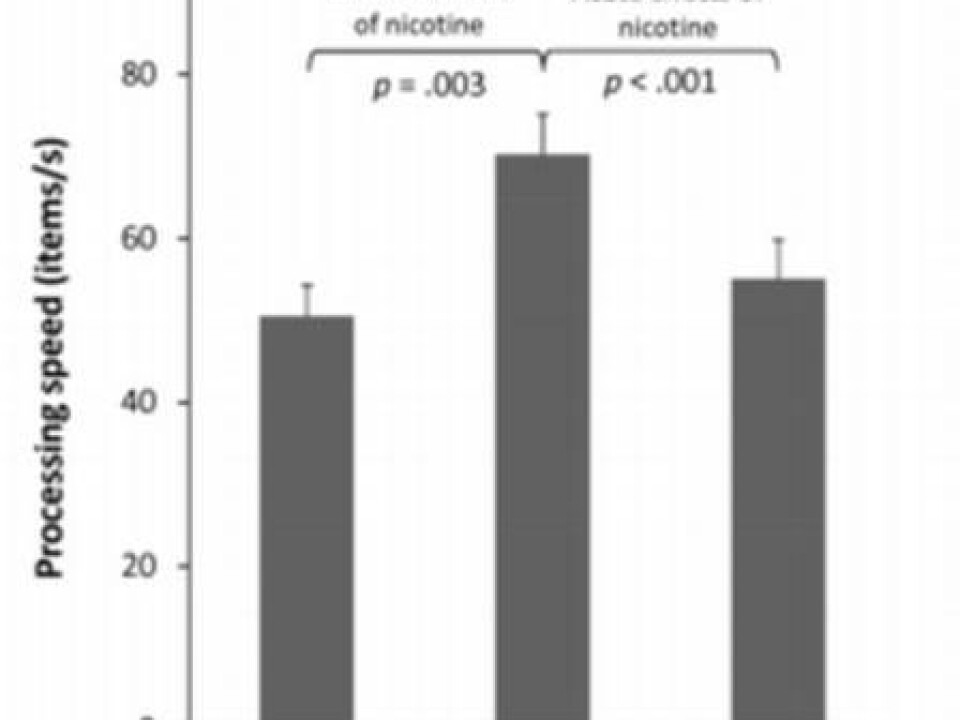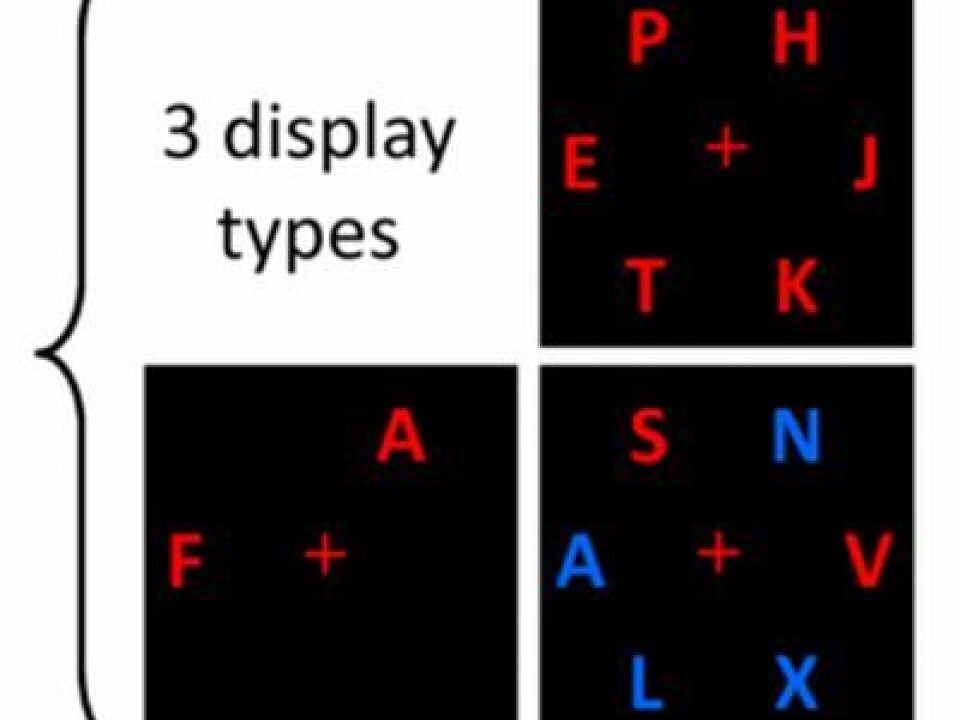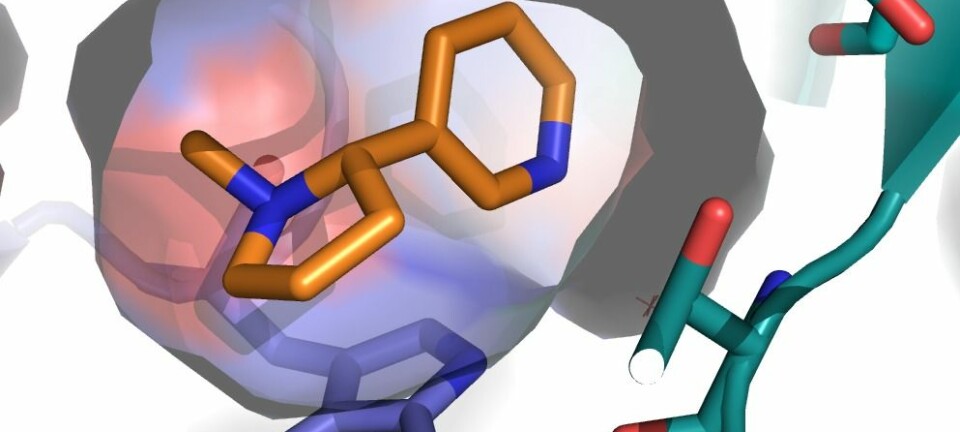
Nicotine worsens processing ability
Nicotine gives you a kick-start, but the benefit stops there. New research shows that nicotine affects our information processing ability in several ways.
Imagine a red car and a blue car, lined up on a starting grid.
The start light flashes and the blue car is off like a shot. The red car takes a little longer to get going, but quickly catches up with the blue car. Then the driver of the red car gives an indulgent wave, sweeps past and accelerates away.
The blue car illustrates how the body is affected when nicotine enters the bloodstream. The brain gets a kick-start – but after that its performance progressively deteriorates.
A non-smoker with only the natural amounts nicotine in the blood can process around 70 elements per second, while a non-smoker with nicotine in the blood can process only 55 elements, according to a new study.

“These are significant results because nicotine is often presented as a performance-enhancing substance in public debates. This can help us to refine the picture,” says Signe Vangkilde, who has just defended her thesis, entitled 'Modulations of Visual Attention in Time and Space', at the Department of Psychology, University of Copenhagen.
Faster and worse
Previous studies focused on getting test subjects to answer as quickly as possible, she says. But that has only helped to distort the picture.
“Nicotine-affected subjects answer faster than non-nicotine affected subjects, so nicotine has long been regarded as a performance-enhancing substance,” she says. “But I wanted to examine what happens when you omit motor skills – which relate only to how quickly test subjects answer and not how well.”
In other words, she wanted to determine whether the performance of nicotine-affected subjects was faster and better, or faster and worse. Her findings indicate the latter.
Accuracy rather than speed

In the experiment, a group of 24 non-smokers were tested twice. In the first round, the participants were given nicotine chewing gum 30 minutes before the experiment started. In the second round, they were given an ordinary piece of chewing gum to act as placebo. They did not know which of the two was the nicotine-containing gum.
The participants were then placed in front of a screen where several letters were displayed. They were asked to remember as many letters as possible, and the test was repeated more than 300 times. On each occasion, the letters were displayed on the screen only for a fraction of a second, but the exposure time varied during the experiment.
The participants were told that it was not important how quickly they recalled the letters. The most important thing was that they recalled them as accurately as they could.
Nicotine affects short-term memory
Vangkilde and her colleagues wanted to study how many elements can be retained in short-term memory, and how fast the maximum capacity is reached, with and without nicotine in the blood.
The results showed that when participants had nicotine in their blood, they got started faster on processing information. They recalled more letters with nicotine in their blood than without, when the letters were displayed for a short time on the screen.
But the longer the letters were displayed, the more letters the participants could remember when they only had the natural levels of nicotine in their blood. Nicotine made them faster, but worse.
Real smokers included in tests
The experiment was subsequently repeated in different versions. Instead of nicotine-affected non-smokers, real smokers, who were not allowed to smoke for two hours, were given the test.
The test performance of the smokers was the same as for nicotine-affected non-smokers. According to Vangkilde, this could have a completely different explanation – that the smokers were nicotine-depleted and so had an imbalance in relation to their usual nicotine level, just as with non-smokers with nicotine in their blood.
“There is a certain natural level of nicotine in the body, and our hypothesis is that this is the optimal level decided by nature,” she explains. “When nicotine is withheld from a smoker, nicotine depletion results, while a nicotine-affected non-smoker will have a surplus, and an ordinary non-smoker will have the ideal level.”
Both smokers and non-smokers were also given the same test as before, but with some of the letters red and others blue. They were asked to disregard the blue letters and remember the red. In this test, the non-nicotine affected subjects were much better at distinguishing the required information from the nonrequired information than nicotine-affected non-smokers and smokers.
Revealing results
According to Vangkilde, the results reveal an entirely new aspect of how nicotine affects concentration and short-term memory.
“With other methods of measurement that have been used until now, only the positives of nicotine have been seen. But our method shows the other side of the coin,” she says. ”Nicotine is possibly performance-enhancing in some respects, but not in those measured in this study.”
Vangkilde has just begun a three-year post-doctorate at the University of Copenhagen, and will now conduct research into how the performance of smokers is affected when they smoke more or less, and when they stop smoking.
“This will give us the opportunity to advise smokers on how nicotine affects their thought processes,” concludes Signe Vangkilde.
Translated by: Nigel Mander






